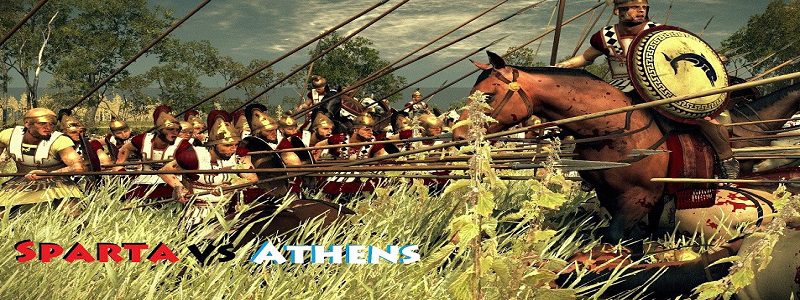
Athens vs. Sparta: An Argument-Based Project, with Documents, Debates, and Discussion
Overview
Ancient Greece is often considered the birthplace of Western Civilization. When we study the place and time of ancient Greece — in, for example, Humanities, World Studies, European History, Civics, or Government — we are studying seminal antecedents of the United States — social, cultural, educational, political. One angle in this content is to contrast the primary city-states, and Peloponnesian War antagonists, Athens and Sparta.
This multi-layered argument-based project has students study the two city-states through five domains of these comparable but contrasting societies: economy, education, government, military, and treatment of women & slaves. Students engage in close examination of primary and secondary documents, extensive written and oral discussion of the arguments in these documents, and Table Debates (with an argumentative writing component). The debatable issue for this project is:
Which city-state, Athens or Sparta, presents us with the better model for organizing a society?
Implementation Plan
In lieu of the “method and procedure,” this post will focus on the 12-day Implementation Plan that is taking partner schools through the argumentalization of their study of ancient Greece.
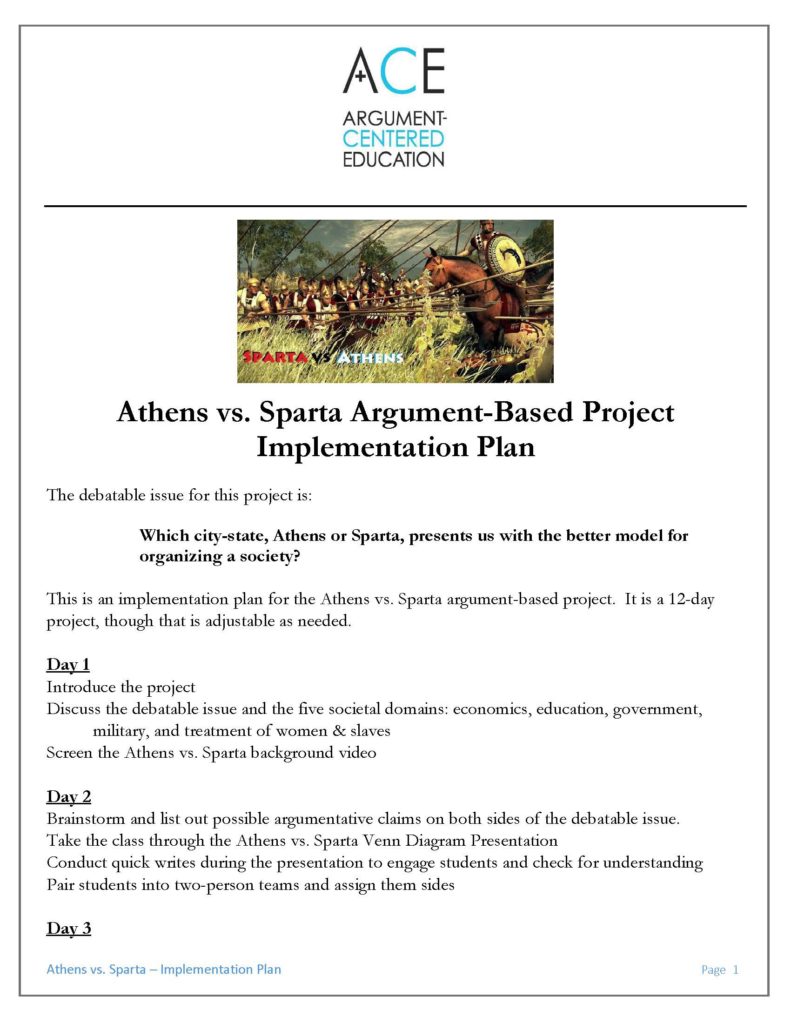
Day 1
Introduce the project
Discuss the debatable issue and the five societal domains: economics, education, government, military, and treatment of women & slaves
Screen the Athens vs. Sparta background video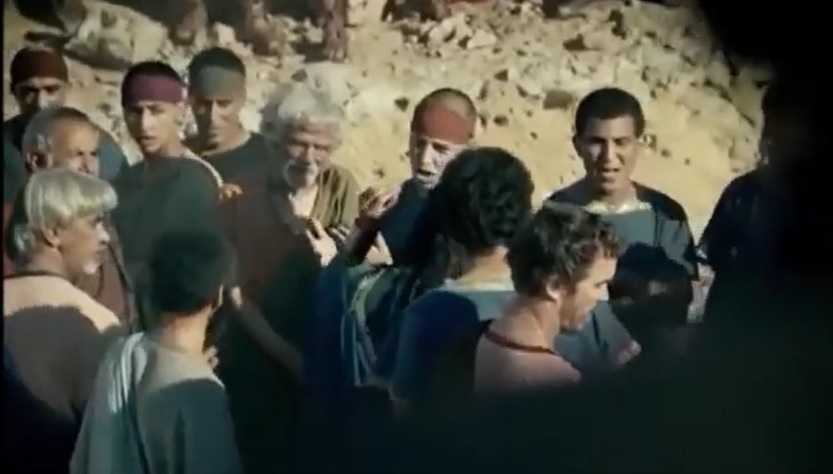
Day 2
Brainstorm and list out possible argumentative claims on both sides of the debatable issue.
Take the class through the Athens vs. Sparta Venn Diagram Presentation
Conduct quick writes during the presentation to engage students and check for understanding
Pair students into two-person teams and assign them sides
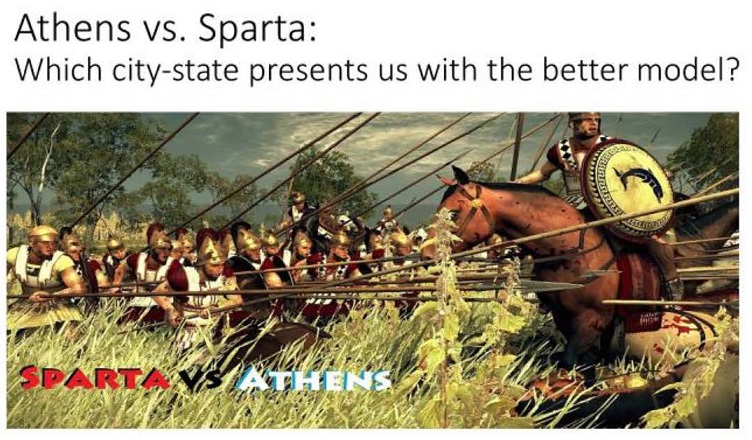
Day 3
Support and monitor student work on the Venn Diagram Argument-Based Questions
Collect and formatively Venn Diagram Argument-Based Questions
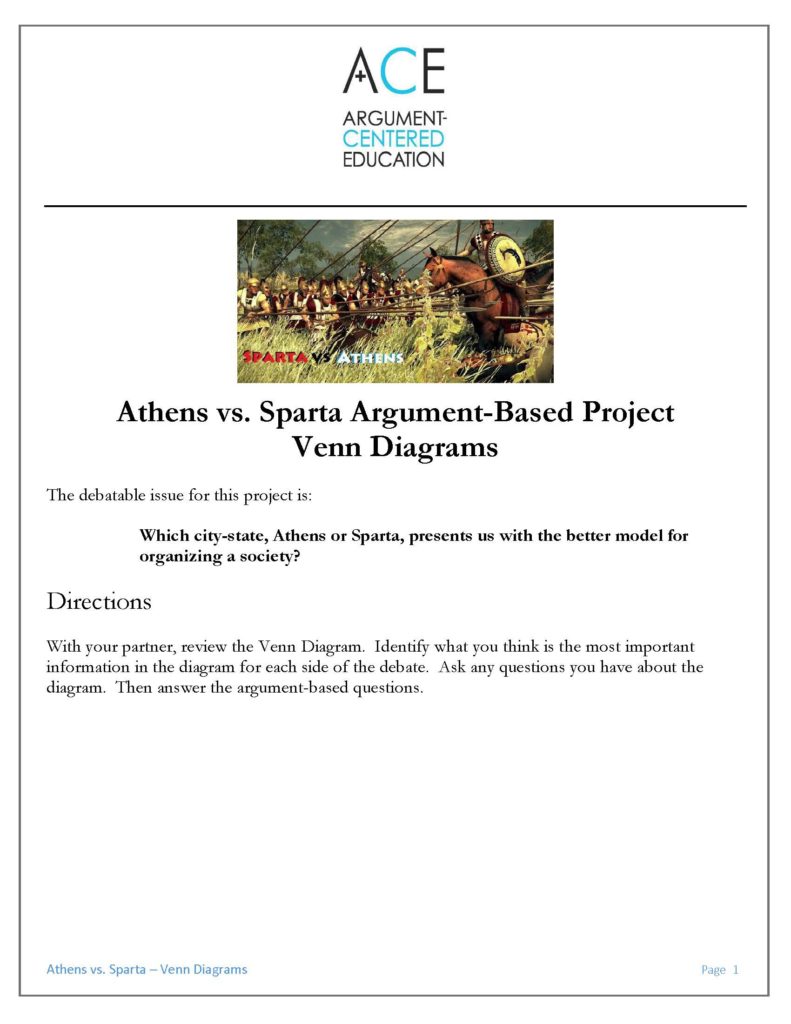
Day 4
Hand back and present feedback on students’ Venn Diagram Argument-Based Questions
Distribute and have students begin working on the Documents & Arguments
Day 5
Support and monitor student work on Documents & Arguments
Circulate to find patterns of difficulty on Documents & Arguments and discuss those challenges
Showcase successful student work
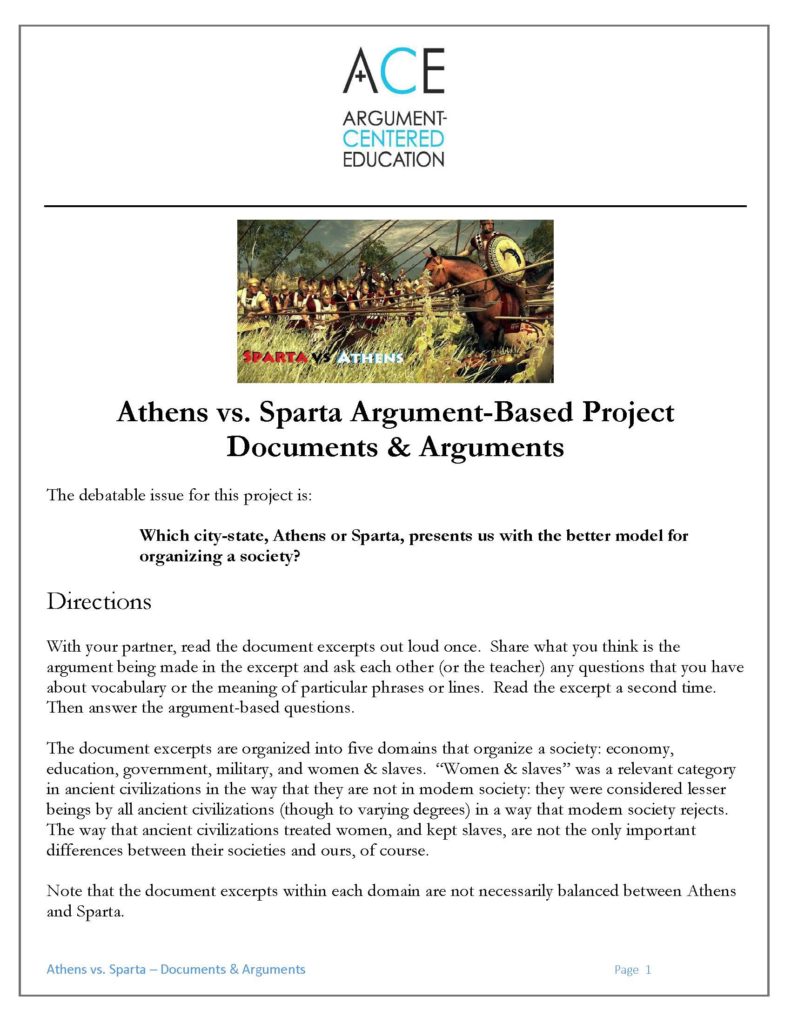
Day 6
Support and monitor student work on Documents & Arguments
Showcase successful student work
Collect and formative assess Documents & Arguments
Day 7
Hand back and present feedback on students’ Documents & Arguments
Orient students on the Table Debates format
Distribute Argument Builders and Counter-Argument Builders
Review Argument Builder and Counter-Argument Builder models
Support and monitor student work on Argument Builders
Day 8
Announce pairings for the Table Debates – each team should get two opponents
Continue to support and monitor student work on Argument Builders
Collect and formatively assess Argument Builders
Day 9
Hand back and present feedback on Argument Builders
Support and monitor student work on Counter-Argument Builders and revision of Argument Builders
Day 10
Review the Table Debates format and flow sheet
Support and monitor final student work on Counter-Argument Builders
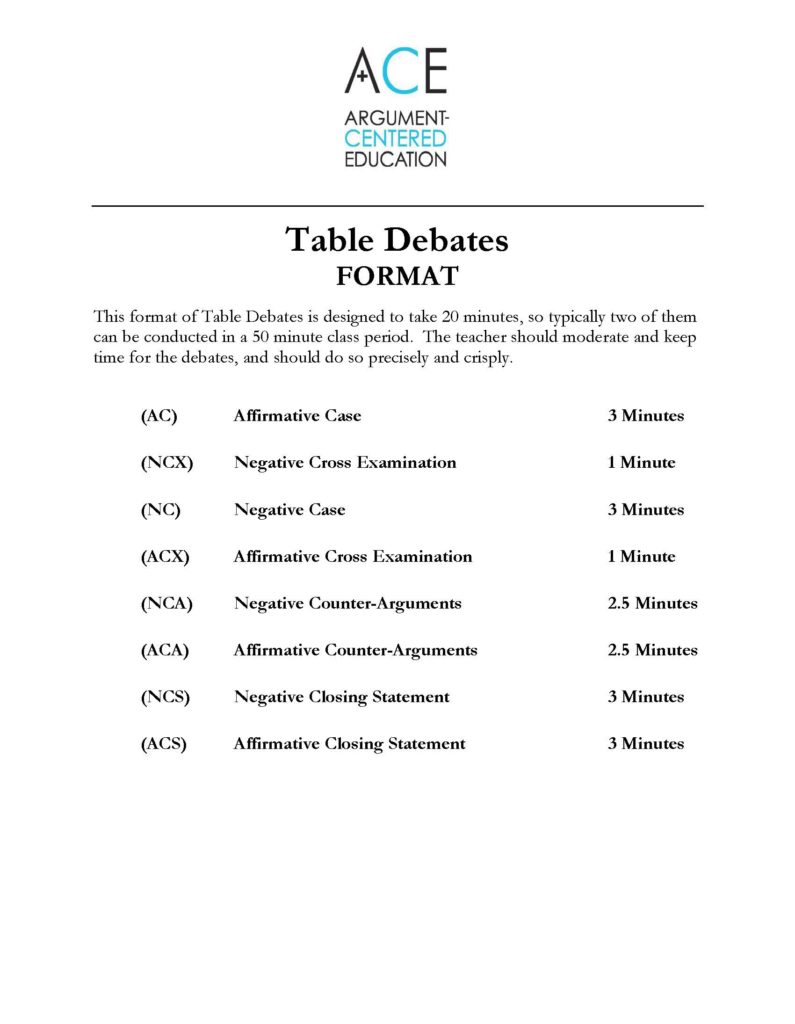
Day 11
Conduct Table Debates
Collect and assess Table Debates Flowsheets
Day 12
Conduct in-class argument writing assessment


Trackbacks for this post